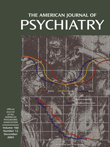The Years of Silence Are Past: My Father’s Life With Bipolar Disorder
Stephen Hinshaw, in his role as a psychologist, professor, and, most significantly, a son, describes for the reader the history of his father’s mental disorder. We learn of a man gifted in multiple ways, a philosopher and a tenured professor at Ohio State University, who was afflicted with a puzzling, unpredictable, and in many ways frightening illness, bipolar disorder.
Virgil Hinshaw’s experiences as a patient are reflective of the history of diagnosis and treatment of severe mental illness in the latter half of the 20th century. Perhaps partly because of the psychotic nature of his manic episodes and confusion regarding the assessment of conditions with psychosis, Virgil was for many years diagnosed with schizophrenia. He received multiple ECT treatments over the years and was among the first psychiatric patients to be medicated with chlorpromazine. More than two decades passed before he was finally given an accurate diagnosis of bipolar disorder and treated with lithium.
These were decades of turbulence for Virgil, marked, as the title suggests, by a paralyzing silence in his family. Despite the florid nature of Virgil’s disorder, he and his wife took great pains to keep hidden from their children the knowledge of their father’s affliction. During periods of hospitalization, their father was mysteriously “away” from the home, with little in the way of explanation provided. Instead, the children were told simply that their father was not well, and that he was getting better in California. Stephen Hinshaw writes, “When he returned, nothing was said, and I somehow knew not to ask” (p. 63). The family’s silence was officially sanctioned. “Silence was reinforced by professional advice: ‘Do not tell your children about your condition,’ doctors told my father, ‘because they cannot comprehend mental illness’ ”(p. 63). Tragically, by these details alone, the text reveals the legacy of social stigma, secrecy, and shame surrounding mental disorder, even as it is culturally transmitted to a young child about his father.
The narrative structure of Stephen Hinshaw’s work weaves together nicely his own personal reflections as a son, biographical descriptions of his father, historical details regarding developments in diagnosis and treatment, and clinical information about the etiology and course of bipolar disorder. His writing style is clear, readable, and authoritative, resulting in a text that is appropriate for a wide audience, ranging from lay people to mental health professionals. Stephen Hinshaw is to be commended for his courage to speak honestly and to offer words of insight and compassion amid the void of silence that sadly still surrounds mental illness. He comments,
Persons with mental disorder are essentially and irreducibly human; their similarities with everyone else vastly outweigh their differences. Considering and embracing such fundamental humanity may well be the most important attitude for professionals and, indeed, for all of society, not only for gaining a better understanding of resilience but also for reducing the stigma that still pervades opinions toward and responses to mental disorder. (p. 191)
Reprints are not available; however, Book Forum reviews can be downloaded at http://ajp.psychiatryonline.org.



